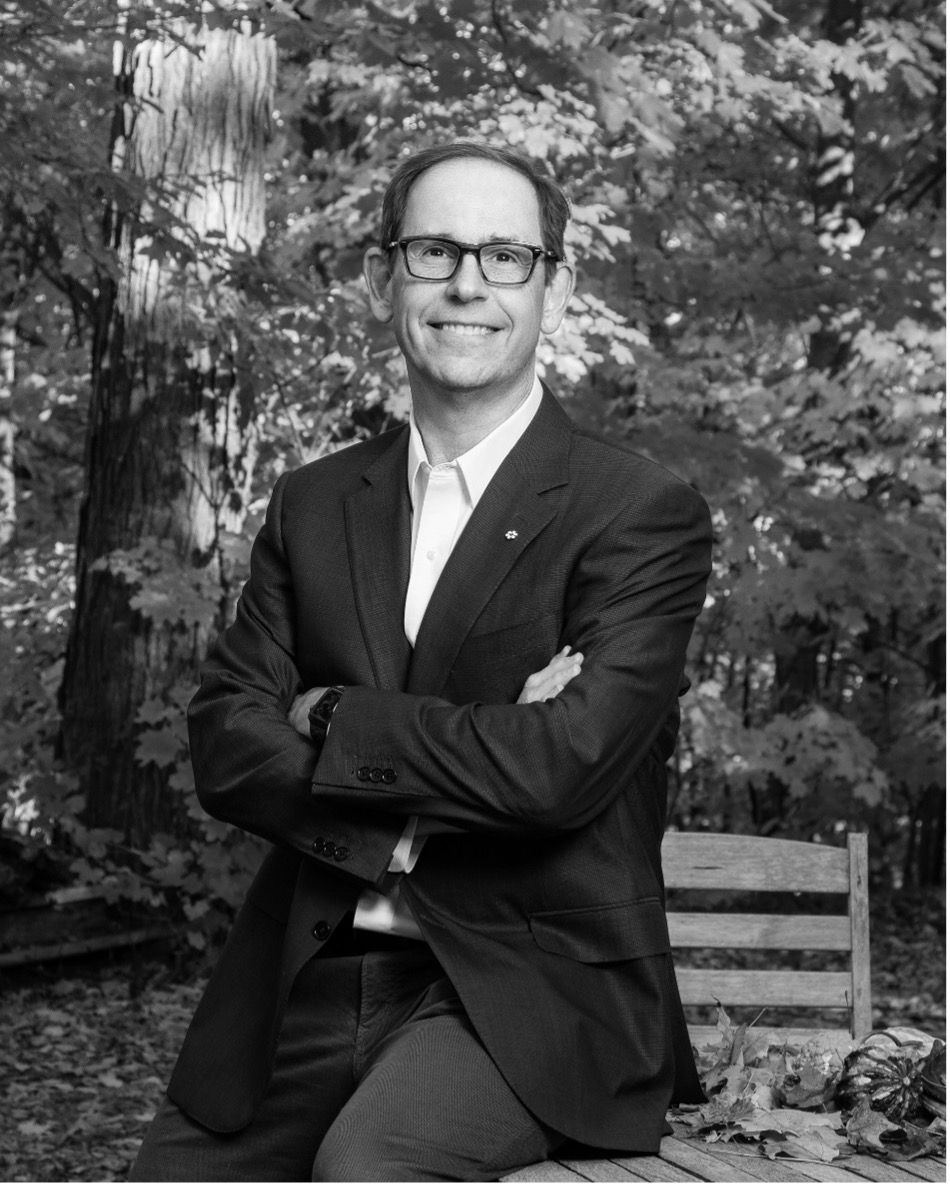
It is my pleasure to welcome you to the Department of Chemistry at the University of Toronto. Chemistry has never been more important, in so far as it impacts our daily lives in obvious, and sometimes less obvious, ways. Our mission is to create a stimulating learning environment that is inclusive and welcoming to all, as we work together to prepare for an ever-changing world.
Chemists continue to create, analyze, measure, understand, and use molecules to improve the world around us.
Our ten undergraduate programs of study and faculty research interests cover all disciplines of chemistry, and we have forged interdisciplinary links with environmental science, computer science, physics, mathematics, biology, engineering, medicine and nanoscience. Our faculty are recognized at home and abroad as leaders in their fields of inquiry, and have been similarly recognized with distinction for the outstanding educational experience they provide. Talented technical and administrative staff offer support for students and researchers to facilitate the optimal instructional and research environments.
We are fortunate to attract creative and determined graduate students and postdoctoral fellows from across the country, and around the globe. Their efforts are behind many of the discoveries originating in our laboratories, and they are the foundation on which the success of the department rests. Excellence in research promotes, and goes hand-in-hand, with effective teaching, as the latest advances are incorporated into our undergraduate and graduate courses and build on foundational material. The St. George campus is home to 500+ undergraduates enrolled in a Chemistry program, and almost 6000 students take one or more of over 50 courses offered each year.
The past decade witnessed a remarkable level of renewal of our faculty at all three campuses. Nine tenure stream and teaching stream faculty have initiated their careers on the St. George campus, representing diverse areas of our discipline. Seven additional appointments were made at UTM and UTSC. These dynamic new scholars work in emerging fields, with many cross appointed to allied departments across the university. Among the new appointments are a Canada Excellence Research Chair (CERC). Several faculty members have been recognized with Canada Research Chairs (CRCs) and Distinguished Professorships, as well as earning teaching awards at departmental, university and external levels.
Our undergraduate and graduate laboratories were renewed with an increasing emphasis on functionality and safety, supported by quality analytical services. $2 million dollars of undergraduate laboratory equipment has been purchased and installed during the last three years, meaning our students have access to state-of-the-art facilities and routinely perform cutting-edge experiments.
The Davenport research wing was added in 2000, offering two floors of exceptional space for organic and inorganic synthesis and biological chemistry. We have large, new, fully equipped departmental facilities for every type of chemical analysis including mass spectrometry, nuclear magnetic resonance, electron microscopy and X-ray diffraction with over $20 million dollars of equipment purchased in the recent years.
The Centre for Medicinal Chemistry (CMC) at the UTM campus is welcoming scholars at the biology-chemistry-medicine interface as it seeks new therapeutic agents to treat human disease.
The Acceleration Consortium (AC) seeks to create “self-driving laboratories” that can improve the rate of discovery of new materials. Chemistry faculty are at the heart of this initiative and new space will be built to house these labs of the future.
Chemistry has faculty representation in the Centre for Research and Application in Fluid Technologies (CRAFT), whose mission is to miniaturize devices to be used in a wide variety of chemical, medical and engineering applications.
The Director of the Centre for Quantum Information and Quantum Control (CQICQ) as well as faculty from the department are part of an interdisciplinary group spanning Physics, Mathematics, Computer Science, Electrical Engineering and Materials Science.
Chemistry faculty are at key participants in a joint NRC-U of T Collaboration Centre for Green Energy Materials whose mission is create sustainable new materials including photovoltaics, renewable feedstocks and robotics-enabled materials discovery.
The faculty at UTSC are building upon their strengths in analytical, biological and environmental chemistry as they develop new linkages with the Scarborough Academy of Medicine and Integrated Health (SAMIH).
We invite you to explore our website, enrol in our courses, join our graduate program, reach out and meet faculty to discuss research, and learn from our amazing staff.
Mark Lautens, O.C., FRSC,
Chair, University Professor, AstraZeneca Chair in Organic Synthesis


